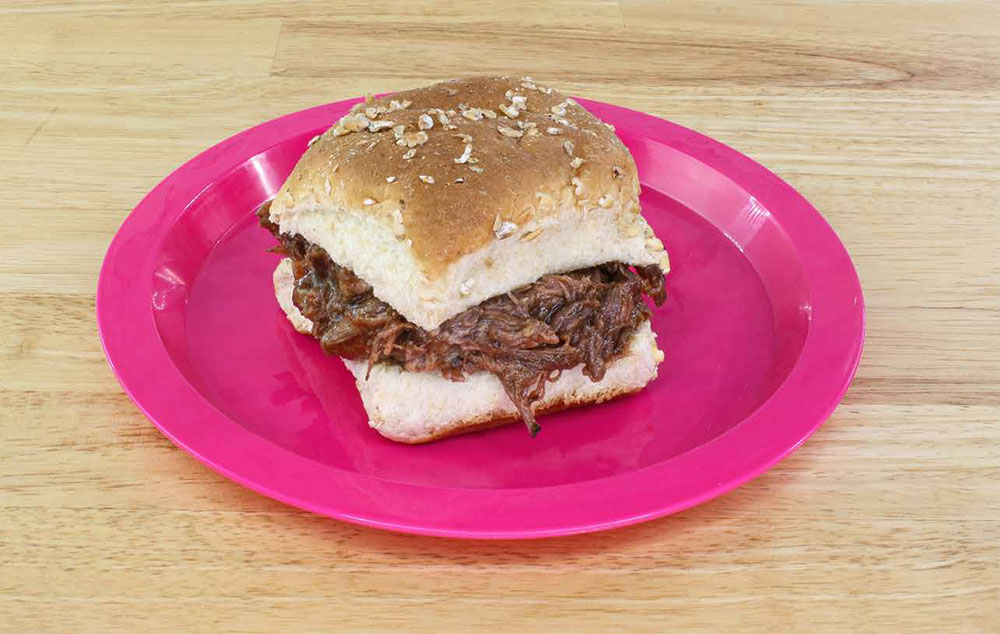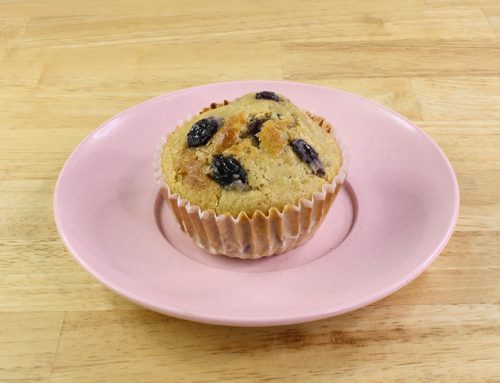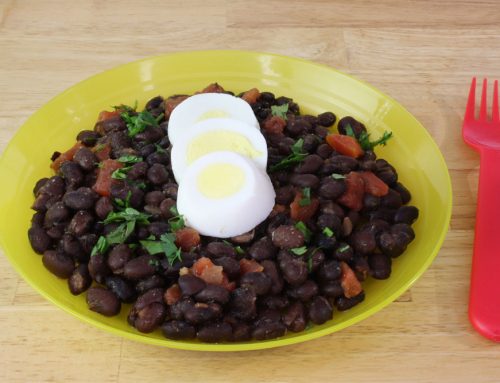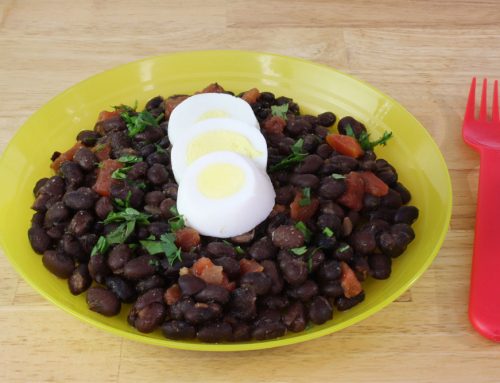Barbecue Beef Sliders USDA Recipe for Family Child Care Homes
Age Group: Ages 3-5
Serving Size: 6
These easy-to-make sliders are small sandwiches that pack big flavor. CACFP Crediting Information 1½ oz eq meat1 oz eq grains
Ingredients
- 6 - Rolls or slider buns, whole-wheat (at least 28 g or 1 oz each)
- 14½ oz Beef chuck roast, fresh or frozen, thawed, without bone, practically free-of-fat
- ¼ cup Barbecue sauce
Quantity
- 6 - Rolls or slider buns, whole-wheat (at least 28 g or 1 oz each)
- 14½ oz Beef chuck roast, fresh or frozen, thawed, without bone, practically free-of-fat
- ¼ cup Barbecue sauce
Ingredients
- 6 - Rolls or slider buns, whole-wheat (at least 28 g or 1 oz each)
- 14½ oz Beef chuck roast, fresh or frozen, thawed, without bone, practically free-of-fat
- ¼ cup Barbecue sauce
Quantity
- 6 - Rolls or slider buns, whole-wheat (at least 28 g or 1 oz each)
- 14½ oz Beef chuck roast, fresh or frozen, thawed, without bone, practically free-of-fat
- ¼ cup Barbecue sauce
*See Marketing Guide
Ingredients
- 6 - Rolls or slider buns, whole-wheat (at least 28 g or 1 oz each)
- 14½ oz Beef chuck roast, fresh or frozen, thawed, without bone, practically free-of-fat
- ¼ cup Barbecue sauce
Quantity
- 6 - Rolls or slider buns, whole-wheat (at least 28 g or 1 oz each)
- 14½ oz Beef chuck roast, fresh or frozen, thawed, without bone, practically free-of-fat
- ¼ cup Barbecue sauce
*See Marketing Guide
Ingredients
- 6 - Rolls or slider buns, whole-wheat (at least 28 g or 1 oz each)
- 14½ oz Beef chuck roast, fresh or frozen, thawed, without bone, practically free-of-fat
- ¼ cup Barbecue sauce
Quantity
- 6 - Rolls or slider buns, whole-wheat (at least 28 g or 1 oz each)
- 14½ oz Beef chuck roast, fresh or frozen, thawed, without bone, practically free-of-fat
- ¼ cup Barbecue sauce
*See Marketing Guide
Ingredients
- 6 - Rolls or slider buns, whole-wheat (at least 28 g or 1 oz each)
- 14½ oz Beef chuck roast, fresh or frozen, thawed, without bone, practically free-of-fat
- ¼ cup Barbecue sauce
Quantity
- 6 - Rolls or slider buns, whole-wheat (at least 28 g or 1 oz each)
- 14½ oz Beef chuck roast, fresh or frozen, thawed, without bone, practically free-of-fat
- ¼ cup Barbecue sauce
*See Marketing Guide
Instructions
- Wash hands with soap and water for at least 20 seconds.
- Place beef in a slow cooker, at least 2 quarts. Cook on low for 4 hours or cook on high for 2 hours. Heat to an internal temperature of 145 °F or higher for at least 15 seconds. Wash hands after touching uncooked beef.
- Remove beef from slow cooker. Place on a cutting board. Use two forks to shred beef into strips.
- In a medium bowl, combine shredded beef, barbecue sauce, and 2 Tbsp of au jus (liquid) from the slow cooker. Mix.
- Slice rolls in half horizontally (if not pre-sliced).
- Place ¼ cup barbecue beef between each roll.
- Serve 1 slider. Serve immediately, or keep warm at 140 °F or higher.
Nutrition INFORMATION
Barbecue Beef Sliders USDA Recipe for Family Child Care Homes
Amount Per Serving
1 Barbecue Beef Slider
Calories
184
Total Fat
5
g
8
%
Saturated Fat
1
g
6
%
Cholesterol
29
mg
10
%
Sodium
371
mg
16
%
Total Carbohydrate
24
g
8
%
Dietary Fiber
3
g
13
%
Total Sugars
7
g
8
%
Protein
13
g
26
%
Calcium
54
mg
5
%
Iron
2
mg
11
%
N/A=data not available
*Marketing Guide
The CHEF TIPS:
- Contains wheat (rolls). Barbecue sauce can be a hidden source of common allergens, which include milk, peanuts, tree nuts, eggs, fish, shellfish, soy, wheat, and sesame.
- Sesame can appear as an ingredient in food where it might not be expected (rolls) and may be included in the ingredients statements as “spice” or “flavoring.”
- The symbol indicates the recipe is whole grain-rich.
- Creditable grains contribution calculated using the Recipe Analysis Workbook, Method A.
Yield / Volume




